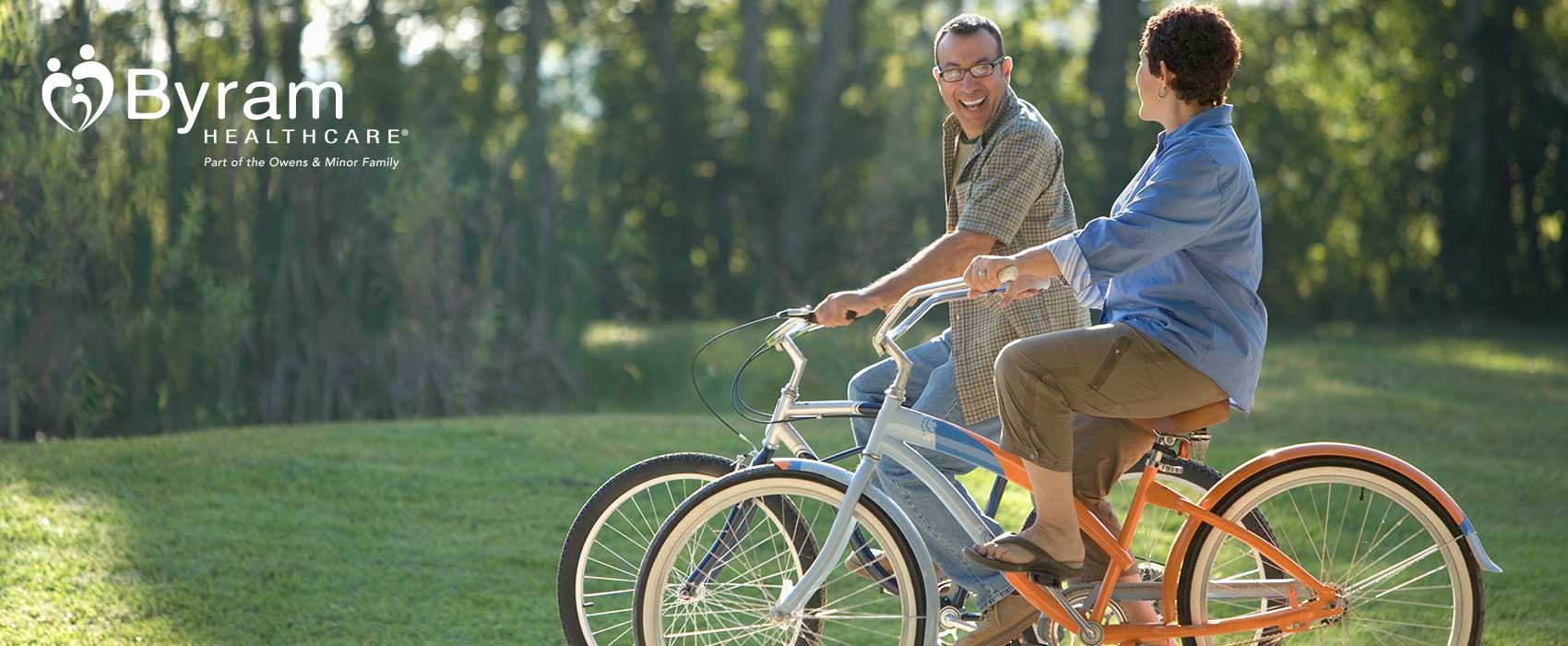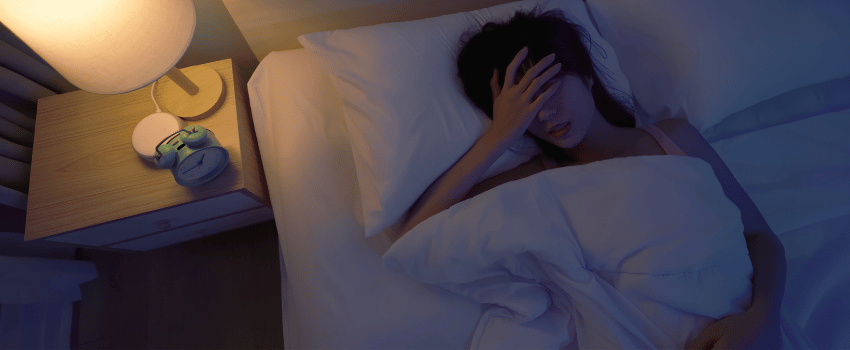
Overactive bladder (OAB) is a term that’s used to describe a range of urinary symptoms and is therefore, not technically defined as a disease. Overactive bladder affects over 30 million men and women in the United States, making it a very common urologic condition. OAB can present itself through the presence of urgency, frequency, nocturia, and other disruptive symptoms. These can be consistent or come and go over time. There are many potential causes for overactive bladder, some of which include diabetes, urinary tract infections, neurological disorders, nerve damage, infection, hormonal changes, bladder abnormalities, bladder obstructions, medications, declining cognitive function, excessive consumption of bladder irritants, obesity, difficulty walking, incomplete bladder emptying, and weakened pelvic floor muscles. However, with lifestyle changes and the proper treatment, you can find relief from severe or disruptive overactive bladder symptoms. To help, here are the top 12 tips to manage overactive bladder.
- Incorporate Daily Pelvic Floor Exercises
One of the best ways to manage overactive bladder is to strengthen your pelvic floor muscles. These muscles help to support the bladder and control urine that flows through the urethra. When your pelvic floor muscles are weakened, you may experience more urologic conditions, including overactive bladder and other types of urinary incontinence. Take a proactive approach by incorporating daily pelvic floor exercises into your routine. Kegels are a great option that you can do anytime, anywhere. There are also exercises like squats and bridges that can help strengthen your pelvic floor muscles.
If you’re not sure whether or not you’re performing these correctly, consider hiring a physical therapist. Using biofeedback, you’ll learn how to target your pelvic floor muscles and get the most out of your efforts.
- Quit Smoking
There are many urologic conditions that are impacted by smoking and overactive bladder is one of them. Smoking reduces your overall vascular health, which can contribute to the decline of bladder muscles through oxygen deprivation. It’s been found that quitting smoking can reduce some of the symptoms that are associated with overactive bladder, especially in individuals between the ages of 20 and 49. For help quitting, talk to your doctor. There are plenty of smoking cessation tools available to help you quit for good.
- Don’t Strain Yourself
Overactive bladder symptoms can be exasperated by increased pressure on the bladder. This commonly happens when you overexert yourself or lift heavy objects. Lifting heavy objects puts increased pressure on your pelvic floor muscles and weakens them over time. This leads to a reduction in support for your bladder, which increases overactive bladder symptoms in addition to urge incontinence.
- Focus on Nutrition
Your urine is comprised of liquid waste of the food and beverages that you consume. Therefore, your diet has a direct relationship to the health of your bladder and supporting systems. While everyone is different, focusing on eating a healthy, balanced diet with bladder-friendly foods is a great way to manage overactive bladder. If you experience overactive bladder, it’s best to limit or avoid foods that have a high acid content, such as citrus fruits. If you have an intolerance, avoid foods that irritate your body, especially dairy or gluten.
Instead, try to fill up on things like lean proteins, fiber-rich foods, vegetables, non-citrus fruits, nuts, and whole grains. If you’re not sure which foods trigger your overactive bladder, try keeping a log and monitoring your food and beverage intake along with any symptoms for a few weeks. This can give you a better idea of what works for you. Spicy foods, carbonated beverages, and sugar have also been known to worsen overactive bladder, so reducing intake of these should help.
- Stay Hydrated
Unfortunately, a lot of people think that they can manage their overactive bladder symptoms by simply not drinking enough liquids. In reality, the opposite is true. Dehydration can impact several urologic conditions and make them worse, including overactive bladder. While it might seem counterintuitive, dehydration can actually shrink the size of your bladder, thus reducing the amount of urine you can hold at once. Over time, this increases the severity of your overactive bladder and can worsen accidents. Hydration is also important to preserve the muscles in your bladder and pelvic floor.
- Limit Liquid Intake
While this may seem contradictory to the statement above, limiting your overall liquid intake can help you reduce your overactive bladder symptoms. This doesn’t mean you should dehydrate yourself. Instead, only drink water for hydration and try to take small sips throughout the day to avoid overstressing your bladder. This will help you avoid sudden bouts of urgency in undesirable situations.
- Maintain a Healthy Weight
The more you weigh, the more your body is strained. Day after day, excess weight puts pressure on your bones, muscles, and organs, which can lead to complications in the future. If you’re overweight, make a plan with your doctor to lose excess fat and maintain a healthy weight. This can drastically reduce your risk for overactive bladder and ease any symptoms. In fact, it was found that young women with a body fat percentage over 32% were 95% more likely to have overactive bladder when compared to those with lower body fat percentages. Take it slow and begin making healthy lifestyle choices today. Small changes can lead to big differences.
- Get Plenty of Exercise
Exercising can help you maintain a healthy weight while strengthening muscles in your body to support optimal organ function. To help manage your overactive bladder symptoms through adequate amounts of exercise, focus on low impact activities. High impact exercises can trigger urine leakage and be counterproductive to your efforts. To get the most out of your workout, combine cardiovascular exercises with pelvic floor strengthening and core workouts. For low resistance exercise, consider trying Pilates or yoga.
- Plan for Bedtime
Many people with overactive bladder also experience nocturia, or excessive urination at night. Not only is this frustrating, but it hinders the quality and quantity of sleep that you get each day. To help manage your overactive bladder, make a plan for bedtime. Slowly decrease the amount of liquids you drink throughout the day and avoid having alcoholic beverages after work. Instead, try to eliminate fluid intake after 6 p.m., or about two hours before you plan to go to sleep. If you’re having accidents, consider getting incontinence products that will keep you protected throughout the night.
- Address Constipation
Your bowel functions have an impact on how your urinary system works, making constipation a common culprit of overactive bladder flareups. To avoid constipation, make sure that you’re eating enough fiber on a daily basis. This will help you stay regular and therefore, reduce unnecessary overactive bladder symptoms. If you do experience constipation, talk to your doctor about medications or treatment options to get yourself back to normal.
- Limit Caffeine
While caffeine is fine in moderation, too much can irritate your bladder. This irritation can result in muscle spasms that contribute to increased frequency of overactive bladder symptoms. Caffeine also dehydrates you, causing you to drink more fluids throughout the day. If you can’t completely eliminate caffeine from your daily routine, try to at least limit your consumption to one cup of coffee per day in the morning. It may be beneficial to slowly ween yourself off and switch to beverages that are lower in caffeine. Instead of black tea, you can transition to herbal tea. For coffee lovers, consider trying decaf. While it can take some time to eliminate your body’s physical dependence on caffeine, eventually you’ll regain natural energy and won’t have to rely on coffee or energy drinks throughout the day.
- Avoid or Reduce Alcohol Intake
Finally, when trying to manage your overactive bladder symptoms, consider avoiding or reducing your alcohol intake. Alcohol is a diuretic, and it causes a substantial amount of bladder irritation, both of which contribute to worsened incontinence symptoms. While you don’t have to forego alcohol completely, consider saving it for special occasions and limit yourself to one or two drinks when you do go out.
If you’re suffering from overactive bladder, don’t hesitate to schedule an appointment with your urologist. Getting the proper diagnosis is essential to addressing any underlying causes. In addition to the above tips for managing overactive bladder, there are plenty of treatment options you can undergo to eliminate or reduce annoying and embarrassing symptoms. For more information on improving your urologic health, or for support of common urologic conditions like overactive bladder, contact Byram Healthcare today.




